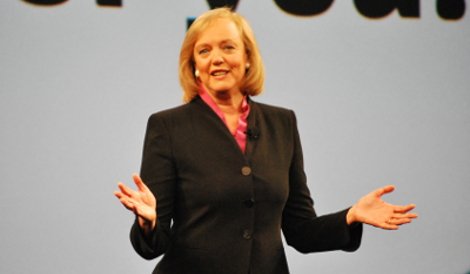HP's second-quarter revenue and earnings per share (EPS) were down year over year, but EPS beat what the company said it expected to make for the quarter three months ago. It was also able to return US$1.1bn in cash to its shareholders through share repurchases and dividend payouts.
CEO and president Meg Whitman said HP beat the upper end of its EPS outlook because its enterprise services and printing segments performed better than expected. Savings from restructuring and operational improvements had accelerated as well, she said.
“I am encouraged by our performance in the second quarter, and I feel good about the rest of the year,” Whitman added. “As I have said many times before, this is a multi-year journey.
“We have a long way to go, but we are on track to deliver on our fiscal 2013 non-GAAP diluted earnings per share outlook.”
HP's revenue for the quarter was $27.6bn – down 10% year over year. The company's EPS were $0.55 – down 31% year over year.
The enterprise services segment reported a decline of 8% in revenue year over year, and printing revenue declined 1%. The printing segment's revenue declined the least, while the personal systems segment's revenue declined the most during the quarter (by 20%).
The enterprise group's revenue declined 10%; software reported a 3% decline; and the company's financial-services segment’s revenue was down 9% year over year.
The return of more than one billion dollars to shareholders improved the company's net debt position for the fifth successive quarter, Whitman said. “By the end of fiscal 2013, we expect our operating company net debt to be below pre-Autonomy levels and approaching our goal of approximately zero.”
She was referring to HP's acquisition of the UK analytics-software company Autonomy for about US$11bn in 2011. Last year, the company wrote down $8.8bn of its value, most of which it blamed on Autonomy's management, which it accused of intentionally misrepresenting the company's financial success.

